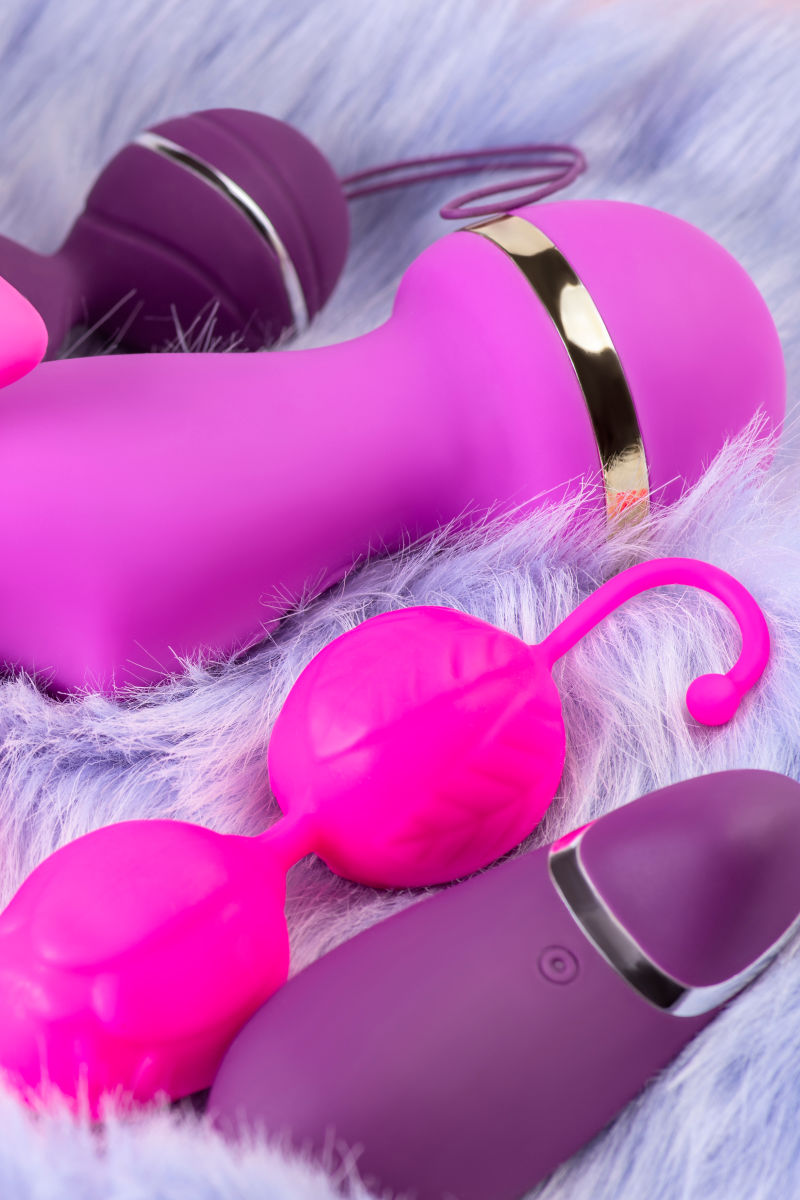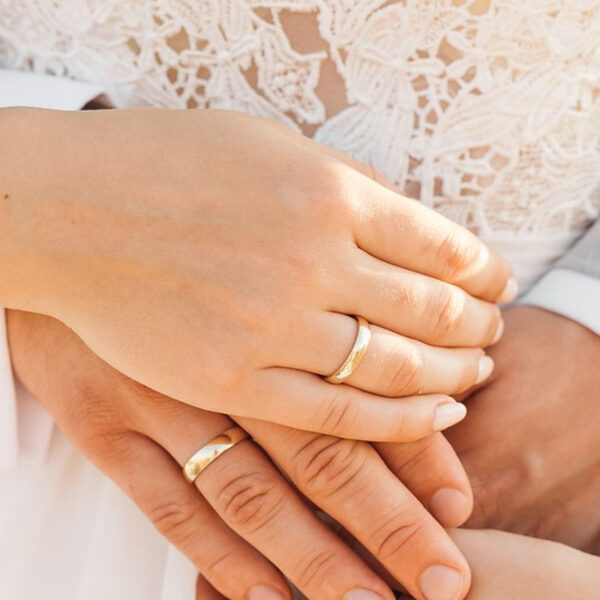
I remember the first time I used sex toys in front of a partner.
I’d been using an old back massager since I was about 12 years old, discovering pretty young that it felt good (probably thanks to blurry images of the Spice channel I’d sneakily watched after begging to stay home from school).
It was my junior year of undergrad, and I’d been sleeping with the same guy for a while. He was curious about exploring sex and this was the first time I’d ever allowed someone to watch me masturbate. I can still remember the shame I felt afterward, the embarrassment, and the worry that I would scare him off. While he and I were toxic for many reasons, showing him how I liked to get off opened a door for us.
We started dipping our toes into kink, consensual non-consent, and discussions about what turned us on. It was the first time I was able to have these conversations with someone without feeling like something was wrong with me. After going to a Catholic college, while it was more liberal and progressive than most, I still often felt like I was walking around with a scarlet letter pinned to my chest. I wanted to “take back” the word slut. These were MY choices and if I stepped into the role, nobody could hurt me. While it took a few years and several therapists to understand that I was still seeking external validation that I was desirable and “good enough,” this was the first time that sex was actually fun for me. I wasn’t just trying to please someone else; I was experiencing mutual pleasure for the first time in my life.
A later boyfriend scoffed when I asked to use sex toys together.
He couldn’t understand why I would need a vibrator or a dildo when he was right there, willing and ready. I didn’t have the knowledge or language to explain why I wanted to incorporate toys. And I again felt shamed into believing that something was wrong with me if I had better orgasms on my own. There was a part of me that was cloaked in darkness, hiding itself, afraid to be seen and judged. This part of me wasn’t new. It had been with me for a long time, coming out to remind me to make myself smaller, take up less space, be less weird, be quieter. This part of me was full of the universal human experience of shame.
Every week, someone comes into my office fearing they are the only ones who experience this feeling, not realizing that we are biologically wired to feel shame. If it’s so universal, how do we overcome the crushing weight of it all? The first step is to talk about it. Talking about shame takes its power away. When someone else can see your shame and accept you despite it, the shame begins to shrink, little by little. This is why talking to a therapist is different from talking to a friend. We are trained to see your shame without judgment, and to help you step into the light.
The type of men who feel intimidated by sex toys don’t tend to be the most educated around sex and pleasure.
I’m going to make a generalization here, but men in this area tend to have a black-and-white view of gender roles. They, too, have been victims of the patriarchal constraints of expectations and pressure. The same ones I yell about on Instagram. But if a vibrator intimidates a man, his ego is more important than your pleasure, full stop. I wish I could walk around with a sign that reads, “Toys are your teammates, not your opponent.”
The idea that sex toys are a replacement for a partner or only for couples struggling with sex is false, heteronormative, and ableist. Queer relationships tend to have higher levels of sexual satisfaction than cishet relationships for many reasons. But, one factor I’d like to point out is the toxic masculinity that seeps its way into cishet relationships. As humans, we all have egos. But the cultural lens of “what a man should be like” is deeply ingrained into our relationships and, therefore, our sex lives. I see this interfering with sexual performance all the time, and often, that’s what it is for men: a performance. If a machine “replaces” their chance to demonstrate their worth as a man, what does that mean for them?
Initially, back in the 1880s, vibrators were “marital aids.”
They were used on women labeled with “hysteria,” a medical diagnosis exclusive to women suffering from a wide array of symptoms, including sexual desire and a “tendency to cause trouble.” It wasn’t until the 1970’s that vibrators became a symbol of empowerment for women, taking back what should have always been ours–our pleasure.
Now, when my clients or girlfriends mention interest in toys but worry that their cisgender male partners will feel some type of way about it, I’m excited to discuss all of the opportunities sex toys bring into relationships. Toys allow us to slow down and truly enjoy pleasing our partners instead of “getting in and out” or checking a box to show we’ve fulfilled a relationship duty. Sex toys can act as a gateway to more profound pleasure and intimacy. They facilitate more communication around needs, desires, and preferences, or even things you’d rather NOT incorporate into your sex life. I cannot stress how important communication is when it comes to sex and pleasure. Even opening a path to discussing new ways to please each other can lead to deeper conversations and connections.
P.S. One of my favorite dates to assign to couples…
is exploring a sex shop or visiting an online store together. I ask them to learn what types of toys exist and note what sparks their interest. Even TARGET is carrying sex toys now! Here are some of my favorite places:
In the Philadelphia area: The Velvet Lily, Pleasure Chest, Passional Boutique & Sexploratorium, Spice2Nite
Online: Dame, Bellesa, We-Vibe, Lelo, Lovehoney, Good Vibrations, Babeland, The Natural Love Company, Betty’s Toy Box
Please make sure to do your research on body-safe materials and purchase quality toys. Check out this article from Bellesa Boutique to get started!
Looking for a therapist or unsure where to begin? Get started on our booking page.





Leave a Reply